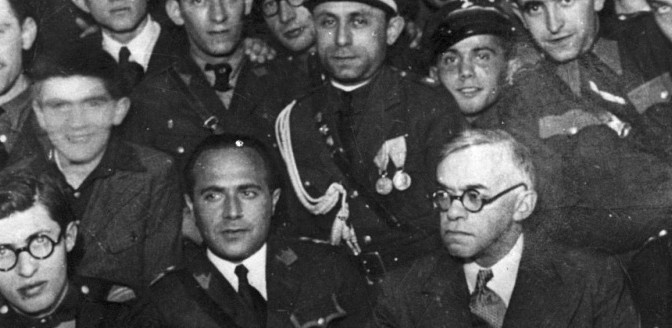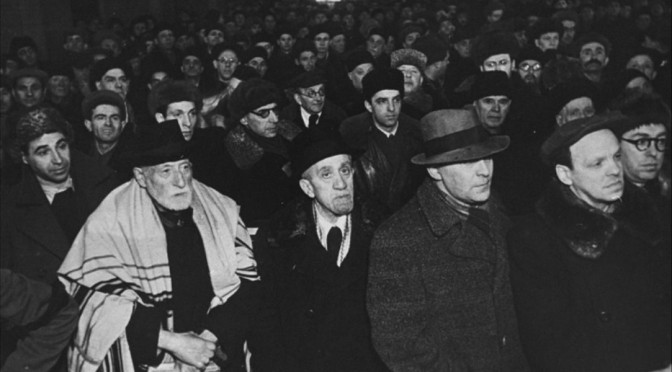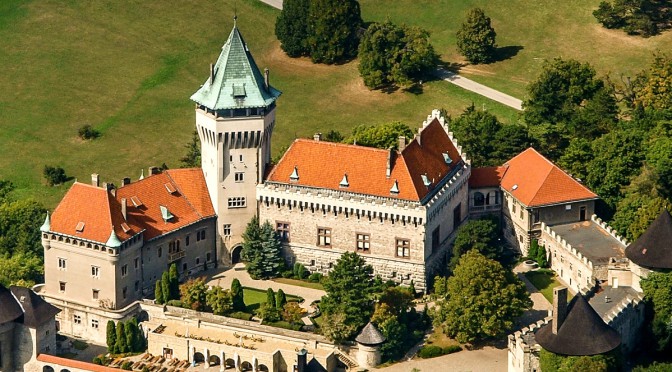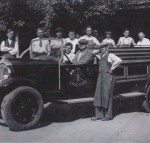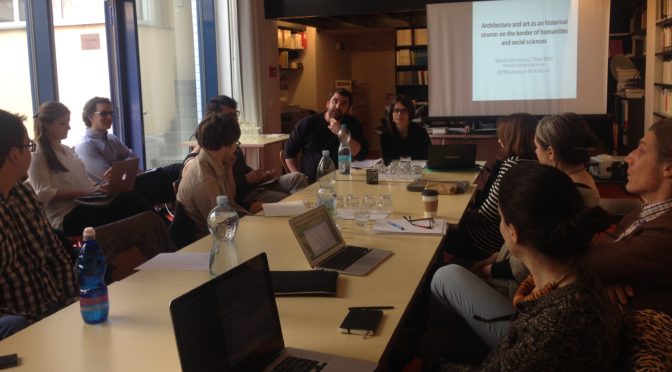European Association of Jewish Studies Conference, Prague
Date & Place: from 23 to 25 May 2017, Villa Lanna, Prague
Language: English
Organizers: Kateřina Čapková (Institute of Contemporary History, Czech Academy of Sciences), Kamil Kijek (Department of Jewish Studies, University of Wrocław), Stephan Stach (Institute of Contemporary History, Czech Academy of Sciences)
Program
23 May 2017
20.00 –20.30 Oleg Zhidkov (Jerusalem): The Jewish Movement in the USSR: New Sources and Perspectives (Video Testimonies)
24 May 2017
9.00 Welcome
9.15–11.00 Panel I – Jewish Life, Religious Practise and Folklore under Soviet Communism (I)
Chair: Ilana Miller (Chicago/Prague)
- Valery Dymshits (St Petersburg), The Boundaries of Illegal: Religious Practices and Shadow Economy in Soviet Jewish Life
- Victoria Gerasimova (Omsk), The Jewish Community of Omsk under the Soviets, from 1940 to the 1960s: Between Tradition and Survival
- Diana Dumitru (Chişinău), ‘It is Better to Live in Romania Than in the Soviet Union’: How Bessarabian Jews Tried and Frequently Failed to Become Soviet Citizens during Late Stalinism
11.00–11.15 Coffee break
11.15–13.00 Panel II – Literature and Jewish Identity
Chair: Joanna Nalewajko-Kulikov (Warsaw)
- Daria Vakhrushova (Düsseldorf), The Utopia of Yiddish Literature after the Revolution
- Magdalena Ruta (Krakow), Nusekh Poyln and the ‘New Jewish Man’: The Image of the Jewish Communist in Yiddish Literature of Post-war Poland
- Gennady Estraikh (New York), Soviet Yiddish Cultural Diplomacy, from the 1950s to 1991
13.00–14.00 Lunch
14.00–15.45 Panel III – Paths of Integration/Disintegration into the Communist Political System and Society
Chair: Michal Kopeček (Prague)
- Galina Zelenina (Moscow), ‘Po Kurskoi, Kazanskoi zheleznoi doroge’: Jewish Private Life in the Moscow Oblast between Leisure, Underground Religion, and National Revival
- Agata Maksimowska (Warsaw), Being Jewish in Soviet Birobidzhan
- Kateřina Čapková (Prague), Centre and Periphery: Jewish Experience in Communist Czechoslovakia
15.45–16.15 Coffee break
16.15–18.00 Round table: The Diversity of Jewish Experiences under Communism
Chair: Marcos Silber (Haifa)
- Zvi Gitelman (Ann Arbor)
- Joanna Nalewajko-Kulikov (Warsaw)
- Bożena Szaynok (Wrocław)
- Andrea Pető (Budapest)
25 May 2017
9.00–10.45 Panel IV – Jewish Identities and Ways of Life under Communism
Chair: Stephan Stach (Prague)
- Anna Shternshis (Toronto), ‘I was not like everyone else’: Soviet Jewish Doctors Remember the Doctors’ Plot of 1953
- Anna Koch (Southampton), ‘After Auschwitz you must take your origin seriously’: Perceptions of Jewishness among Communists of Jewish Origin in the Emerging German Democratic Republic
- Kata Bohus (Frankfurt am Main), The Opposition of the Opposition: New Jewish Identities in the Samizdat of Late Communist Hungary
10.45–11.15 Coffee break
11.15–13.00 Panel V – Jewish Religious Life and Folklore under Soviet Communism II
Chair: Raphael Utz (Jena)
- Ella Stiniguță (Cluj-Napoca), Mountain Jews and the Challenges of Ritual Life in the Soviet Caucasus
- Mikhail Mitsel (New York), Jewish Religious Communities in Ukraine, 1945–81
- Karīna Barkane (Riga), Beyond Assimilation: Jewish Religious Communities in the Latvian SSR
13.00–14.30 Lunch
14.30–15.45 Panel VI Jewish Transnational Encounters
Chair: Katrin Steffen (Hamburg)
- David Shneer (Boulder), East Germany’s Jews, Their Transnational Networks, and East German Anti-Fascism
- Eliyana R. Adler (State College/Warsaw), Strange Bedfellows: The Soviet Red Cross, Polish Jewish Refugees, and the American Joint Distribution Committee
15.45–16.15 Coffee break
16.15–17.45 Concluding Round Table
Chair: Kamil Kijek (Wrocław/Prague)
- Audrey Kichelewski (Strasbourg)
- Elissa Bemporad (New York)
- Arkadi Zeltser (Jerusalem)
The experience of the Jews under the Communist régimes of east-central and eastern Europe has been a hotly debated topic of historiography since the 1950s. Until the 1980s, Cold War propaganda exerted a powerful influence on most interpretations presented in articles and books published on both sides of the ‘Iron Curtain’. Moreover, most works focused both on the relationship between the régime and the Jews living under it and on the role of the Jews in the Communist/Socialist movements and the political events connected with the rise of antisemitism and emigration.
Continue reading Conference: New Approaches to the History of the Jews under Communism →

